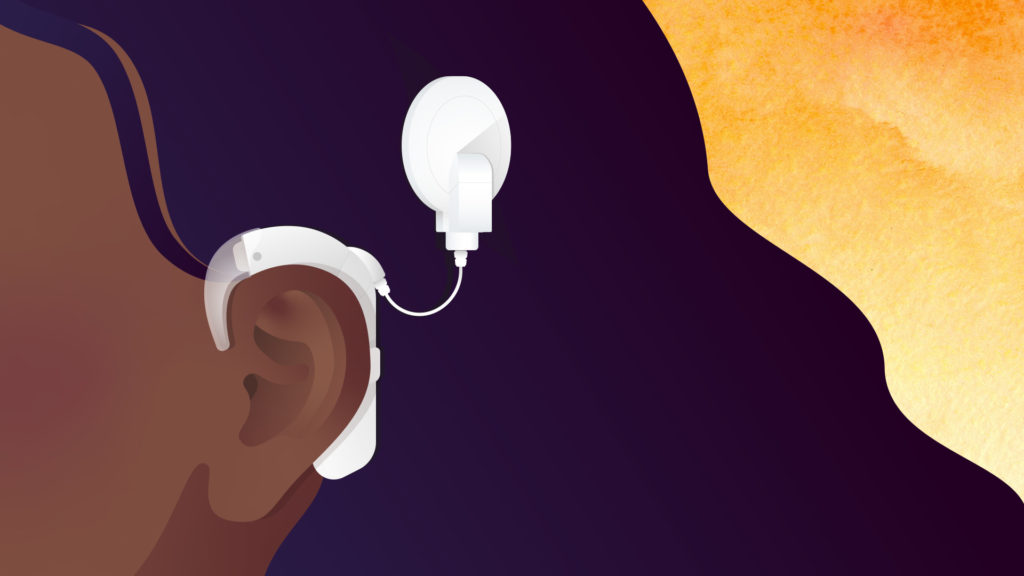
Some of the links on this page may link to our affiliates. Learn more about our ad policies.
What Can A Home Care Worker Do For Me?
Updated on: January 2023

We all love our independence; it’s one of the perks of being an adult. But as we get older, there are certain things that we may not be able to do on our own, including our own in-home health care. At least not well or safely enough.
Many of these things tend to be critical to the quality of life we lead. Things like:
- Taking the right medication at the right time
- Running errands
- Cleaning the house
- Meal preparation
- Making sure we keep the best diet as per our age and lifestyle conditions
- Personal care
- In-home health care
While some of these things may seem simple enough to do now, as time goes, they will get less and less so. Relying on family members to run errands will also get frustrating and inconvenient because everyone has their own busy lives to lead, especially if long-term care is needed.
When this happens, one of the best ways to mitigate any disasters or unforeseeable inconveniences both to yourself and your family is to hire a qualified home care worker.
Having your own personal support worker is one of the best and most comfortable options for seniors who would rather live in their own home but require additional help.
Find What You Need
The Different Types of Caregiving
Also referred to as ‘Domiciliary Care Workers,’ there are many different types of caregivers that you can hire; all with different qualities, qualifications, and purposes. As a senior, it is best to know the different types so that you can identify which one best serves your needs at home:
Personal Care Aides (PCAs)
Perhaps the most common type of home care worker, or health care worker, is a Personal Care Aide (PCA). A PCA is someone who is hired to assist the elderly, persons with a disability or convalescents with the day-to-day living activities in the individual’s own home as well as in a care facility for long-term care.
Their duties often involve tasks such as housekeeping (washing dishes, cleaning the home, doing laundry, making beds and so on). They also help prepare meals as well as provide personal care (bathing, dressing) for the individual. In some cases, they also help with transportation to and from appointments and while running errands.
Registered Nurses (RNs)
Registered Nurses are professional caregivers who are qualified to work in and out of a hospital setting. If you are a senior who has undergone any major surgery or is recovering from any debilitating medical condition, the best home care worker choice for you would be a Registered Nurse.
This is someone who can help with your rehabilitation and post-treatment care needs such as diet, exercise, nutrition, and medication. Registered Nurses are often recommended as follow-up care once you have been discharged from a hospital, care facility or when you need long-term health care.
Home Health Aides (HHAs)
Similar to Personal Care Aides, Home Health Aides provide you with excellent care and assistance at home. The only difference between the two is that Home Health Aides have advanced state-approved training and licensing which makes them capable of identifying and recognizing undesirable symptoms in their patients. This allows them to get you the necessary help quickly.
Physical Therapists (PTs)
As your mobility becomes an issue, you will need a physical therapist on standby. This is a professional who will work with any individual experiencing any kind of difficulty moving around their environment. These professionals also provide specialty services for seniors who have had joint replacement surgery. Their job is to make sure that you can safely move around in your home and community.
Other types of care workers include:
- Occupational Therapists (OTs): These professionals specialize in helping seniors who are cognitively impaired and need help taking care of themselves.
- Speech-Language Pathologists (STs): Specializing in the assistance of seniors who have had a stroke and experience difficulty speaking or swallowing.
- Medical Social Workers (MSWs): These professionals help seniors by showing them how to use the available community resources as well as train families on how to cope with age-related
Although they have different titles, all these professionals have one thing in common: their job is to make your life easier and to improve its quality.
What Do Caregivers Do?
In a nutshell, care workers ensure that you have as easy a life as possible at home. They will help you with your medication, your day to day chores, and your errands and be a platonic companion when you need someone to fall back on. It is their job to help you see the silver lining when age-related issues get you down as they tend to do sometimes.
While it is their duty to ensure that you live in a safe and caring environment, they are also required to respect and promote your choices provided those choices do not put your health or life at risk.
The Benefits of Having a Home Caregiver
The benefits of having a home caregiver are numerous. Apart from the obvious fact that you will have a professional looking for your health and personal care in your own home, you will also have the peace of mind that you are not alone.
If you are thinking of hiring a care worker but are still undecided, here are some associated benefits that can help you make the right choice:
- Home Care is Very Affordable: This is one of the biggest deterrents to in-home care today; people think it is an expensive option. The truth of the matter is that hiring a home care worker costs a lot less per hour than it does to commit yourself to a nursing home.
- It Offers You Personalized, One on One Care: When you hire a home care worker, you will be hiring their full attention; at least when they are in your home. They will shower you with their complete care and attention during their working hours. This tends to be critical when dealing with age-related illnesses and recovery.
- You Get to Keep Your Independence: With in-home care, you will be living right at home. This allows you to keep your independence which will, in turn, boost your confidence and comfort. These are all qualities that create a conducive environment for recovery and happiness.
- Keeps You Close to Your Family: In many cases, ideal nursing homes may be in far off locations (sometimes even in entirely different states). This makes it difficult for the family to visit as often as they would like. Having a home caregiver ensures that you are not uprooted and taken away from your beloved family members.
- Reduces the Risk of Infection: By receiving your care at home, you will be isolated from facilities that house other recovering patients where you run a higher risk of infection. Additionally, hiring a Home Health Aide or a Registered Nurse greatly reduces the chances that an infection or the symptoms of an age-related illness may go unnoticed.
- You Receive A Wide Range of Services: An in-home care worker provides you with more than just the typical personal care services. They also help around the home, run errands, prepare meals and provide much-needed
Of all these benefits, the one that stands out is that an in-home care worker will provide you and your family much needed peace of mind. Just knowing that there is a trained, qualified, and certified individual providing you with the necessary care in the comfort of your own home is a load off the minds of your loving family members. It’s pretty good for you too.
Qualities to Look for in a Care Worker
Just as you would look at the qualifications and type of caregiver to hire, there are certain traits that they should have if this entire arrangement is to work the way you want it to. Here are some of the best qualities to look for in a care worker:
- Patience: You need someone who is very patient and caring because sometimes there will be frustrating moments for both of you.
- Punctuality: You need someone who takes timeliness very seriously considering most of your day will be planned around the care they provide.
- Quick Learner: We all have different needs and preferences. You need someone who can learn those needs and preferences quickly so that both of you can live harmoniously.
- A Good Listener: No one likes repeating themselves. You need someone who will listen to you and hear what you say. Plus, you will probably have stories to tell.
- Willingness to Go the Extra Mile: You need someone who will be willing to go the extra mile when you need them to do so.
- Responsibility: This entire arrangement depends on how responsible both parties are when it comes to keeping to a set schedule. It is absolutely necessary when it comes to keeping a diet and taking medication.
So, to answer the question: ‘What can a care worker do for me?’ A lot! The best care workers will be your friend, your companion, your guide, and someone who will help improve the quality of your life tremendously. Find the right one and you will enjoy your twilight years knowing that you are cared for by a certified professional.
Sources
- https://www.theguardian.com/careers/careers-blog/questions-asked-care-worker-social-care-interview
- https://www.netmums.com/coffeehouse/working-childcare-692/working-689/702956-home-care-work-what-can-i-expect-all.html
- http://www.jobsite.co.uk/worklife/care-assistant-do-21491/
- https://nationalcareersservice.direct.gov.uk/job-profiles/care-worker
- https://www.nhs.uk/Conditions/social-care-and-support-guide/Pages/home-care.aspx

